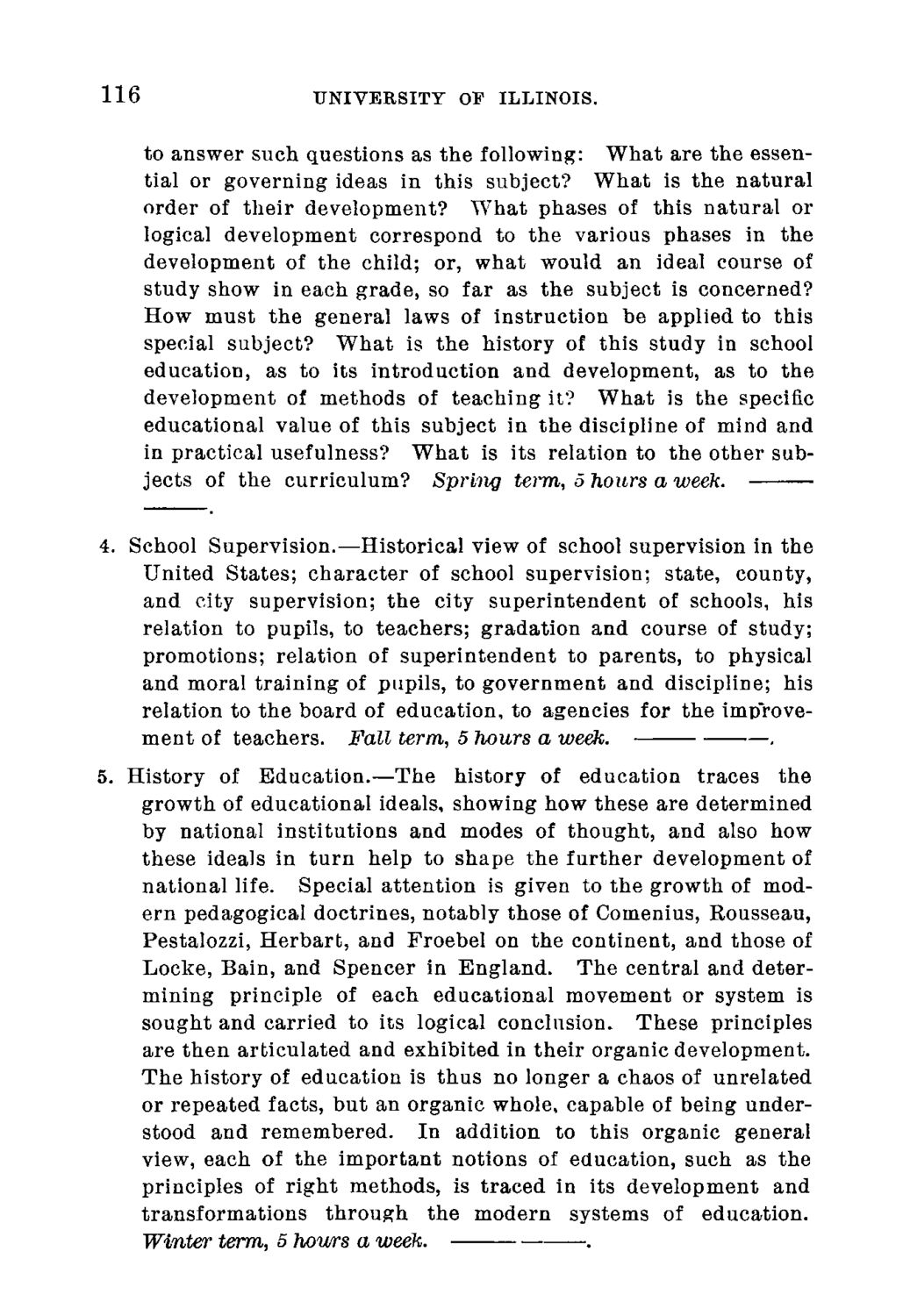| |
| |
Caption: Course Catalog - 1891-1892
This is a reduced-resolution page image for fast online browsing.

EXTRACTED TEXT FROM PAGE:
116 UNIVERSITY OF ILLINOIS. to answer such questions as the following: What are the essential or governing ideas in this subject? What is the natural order of their development? What phases of this natural or logical development correspond to the various phases in the development of the child; or, what would an ideal course of study show in each grade, so far as the subject is concerned? How must the general laws of instruction be applied to this special subject? What is the history of this study in school education, as to its introduction and development, as to the development of methods of teaching it? What is the specific educational value of this subject in the discipline of mind and in practical usefulness? What is its relation to the other subjects of the curriculum? Spring term, 5 hours a week. 4. School Supervision.—Historical view of school supervision in the United States; character of school supervision; state, county, and city supervision; the city superintendent of schools, his relation to pupils, to teachers; gradation and course of study; promotions; relation of superintendent to parents, to physical and moral training of pupils, to governmeut and discipline; his relation to the board of education, to agencies for the imp'rovement of teachers. Fall term, 5 hours a week. . 5. History of Educatiou.—The history of education traces the growth of educational ideals, showing how these are determined by national institutions and modes of thought, and also how these ideals in turn help to shape the further development of national life. Special attention is given to the growth of modern pedagogical doctrines, notably those of Comenius, Rousseau, Pestalozzi, Herbart, and Froebel on the continent, and those of Locke, Bain, and Spencer in England. The central and determining principle of each educational movement or system is sought and carried to its logical conclusion. These principles are then articulated and exhibited in their organic development. The history of education is thus no longer a chaos of unrelated or repeated facts, but an organic whole, capable of being understood and remembered. In addition to this organic general view, each of the important notions of education, such as the principles of right methods, is traced in its development and transformations through the modern systems of education. Winter term, 5 hours a week. .
| |